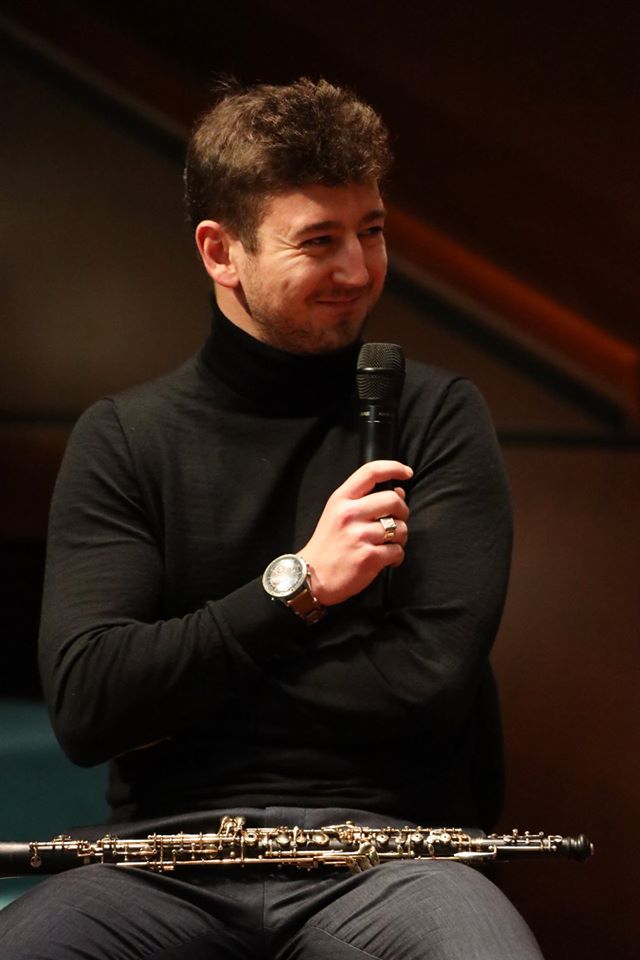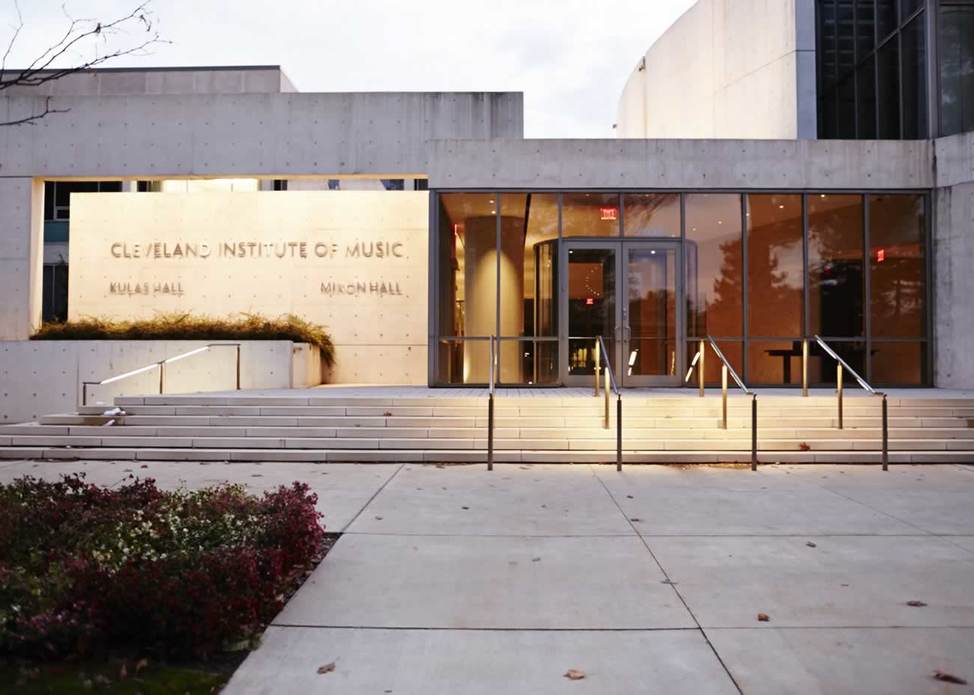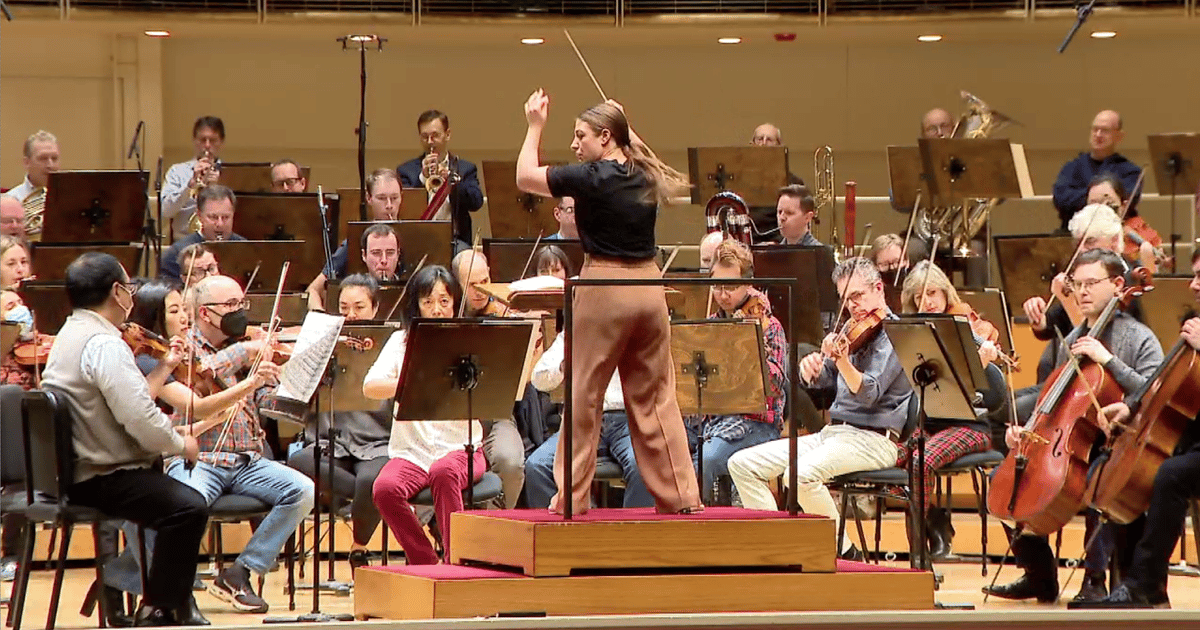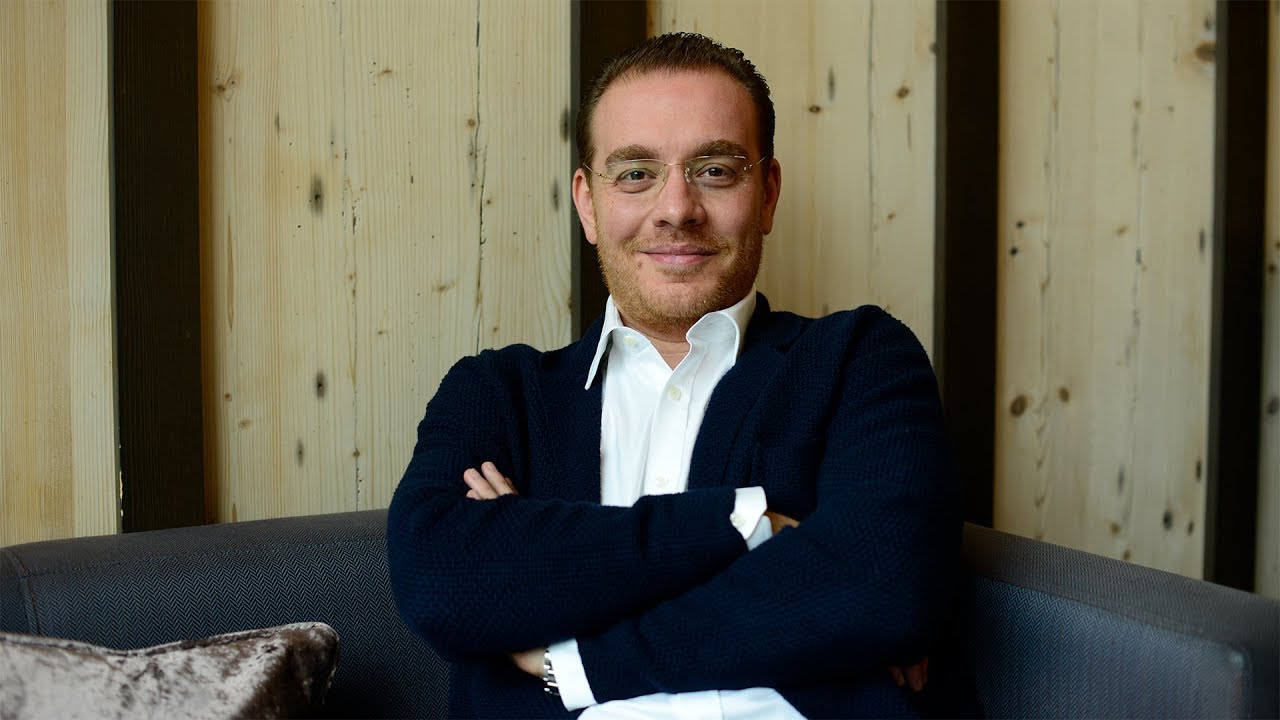Breaking: Philly finds a French oboe, after all
mainThe Philadelphia Orchestra has named Philippe Tondre as principal oboe, starting in September. He’s the eighth principal oboe in 120 years.
Tondre, 31, is presently principal with the Chamber Orchestra of Europe, SWR Symphonieorchester in Stuttgart, and the Budapest Festival Orchestra.
He studied in Paris with David Walter and Jacques Tys and has performed as soloist with leading European orchestras. Music director Yannick Nézet-Séguin said: ‘We are beyond excited to have the uniquely gifted Philippe Tondre join our Orchestra… we anticipate his exciting artistic contributions to our work.’
Most important to Philly fans, he maintains a French oboe sound that has been one of the band’s distinctive features. Much concern had been expressed in public media that the next principal might rupture the tradition.







France a country very important for oboe. A good conservatoire for that in Paris and it’s the country of Marigaux.
Not as good as the US.
phaha…
While I’m pleased with the appointment, wasn’t the point of the letter linked to recently on here to claim that hiring Tondre would break that tradition that is now being billed above as upheld?
Regardless, it’s a wonderful appointment. And if his schedule keeps him from being here in Philly as many weeks as Woodhams during his tenure, the Associate Principal, Peter Smith, is also outstanding.
Yes not sure how Norman got his wires crossed on the controversy.
I don’t think he got his wires crossed at all. I think he’s just poking the kitty.
Yes the Philadelphia oboe section is now set with uniquely outstanding players; not to be overlooked is Elizabeth Starr Masoudnia English horn virtuoso.
Hello Mr. Lebrecht,
As a disclaimer, I have no personal objections to Tondre’s appointment, and I make the following comments in service of factual and accurate information regarding this aspect of double reed culture.
“Most important to Philly fans, he preserves the French oboe sound that has been one of the band’s distinctive features. Much concern had been expressed in public media that the next principal might rupture the tradition.”
This is a misleading statement. The French oboe sound referred to here is considered by the majority of American oboists to be a distinctly American sound developed by the principal oboe of TPO from 1915-1954, Marcel Tabuteau. This sound was developed through both a different and more carved-out approach to reed-making as well as a different use of the lips and air for a specific palate of tonal characteristics, which were very much related to his ideas about music and phrasing as a whole. He also taught at the Curtis Institute for 30 years and disseminated his oboe-specific ideas to the next generation of oboe orchestral players and his broader ideas about music and phrasing to musicians of all instruments.
It is almost impossible to find an American oboist whose educational family tree does not trace back to Tabuteau and his ideas. Specifically, it is the rupturing of this tradition that was concerning to people for a variety of reasons, both concrete (as a member of an oboe section, it is easier to create a blended group sound when playing with someone who has a similar approach to tone production) and less concrete (preserving a lineage and tradition for the sake of continuing it, even though in the end that very lineage did not produce a player that was agreed upon by the decision-making parties to be the right fit for the direction the ensemble is going).
Again, I trust the incredible musicianship of the music director and the musicians of The Philadelphia Orchestra to welcome the musicians they feel are right for their artistic identity today, and Tondre is a world-class artist of the highest caliber. I write this only because those two sentences seemed to me to completely misrepresent the controversy caused by this appointment. As a double-reed player, I am well-versed in the history of Tabuteau and think that theTabuteau legacy has aspects of merit as well as toxic pedagogical elements that have psychologically tormented generations of wonderful musicians. It is important to understand this history so we can celebrate and recognize the new chapter with Tondre for the unique freshness it brings to the musical landscape in the United States.
I’d also add that what’s particular incredible at the Philadelphia Orchestra, is that for a 102 year span there were only three principle oboists: Tabuteau, de Lancie, and Woodhams.
Someone please buy this person a beer! I’ll pay it back later, best oboe comment in Slipped disk!
Yes, Tabuteau’s legacy is the reason why there ist almost no oboe soloist from the US. I’ve never understood why american oboists refuse too see (and hear) that european sound is just superior. I can’t imagine that an informed oboe student would chose the american school. Maybe Tondre will change that and help the american musicians to get rid of these horrible tradition.
To these trained American ears, European oboe sound resembles that of a soprano sax. Superior???
The “American” style was originally really the Stokowski sound, who constantly pressed Tabuteau to modify his French conservatoire style. If the conductor then was allowed to have his way, why not the conductor now? Funny how subsequent Philadelphia conductors can greatly deviate from Stokowski’s approach in countless other material ways without equal claims of violating sacred shibboleths. But who knew there was such a bien pensant world of Cool-Aid drinking American oboe players? I am happy to hear from them even if it sounds like a tempest in a teapot.
We don’t have government funding that allows Americans to develop solo careers. How did Holliger ever develop such a big career playing utter dreck? It wasn’t from being commercially viable. John Mack is just one oboist who produced superlative students after studying at Curtis. I had the misfortune to listen to Holliger live more than once. He was painful to listen to, and his wife completely inadequate as a harpist. American harpists are vastly superior to Europeans, yet few have any kind of solo careers. Again, it’s the lack of funding, opportunity and publicity. You have to be wealthy to have a solo career in the US. Or have a social-political gimmick. Shame on you.
Dear Kolb, it´s not about artistic skills or persons. The european school (I´m only talking about oboe) is simply better.
Well, you can repeat it as often as you like, but it simply isn’t true.
First, the European sound is not superior; it’s just different. That being said, we have to ask, how can a European music director listen to the sound of a chicken being strangled, also known as a European oboe sound, for years on end and not be traumatized by it?
I doubt he is as good as Jeffrey Rathbun, who must have preferred to remain where he is.
Very helpful!
How does Tondre’s sound differ from the “French oboe sound” (now identified as “American” )in the Philadelphia Orchestra tradition? Or does it?
I eagerly await the community’s reaction over time. I predict widespread worry over his sound concept initially until most are won over by his wonderful phrasing and connection with the other principals.
It’s just one more wrong hire that will corrupt the orchestra’s “sound” further. It hasn’t been the Philadelphia Orchestra Sound for decades. Muti started the decline, Sawallisch encouraged it, and it has continued unimpeded, with only Woodhams holding back the flood.
Good for Jim
Depriving yet another superlative American of a rare job.
How sad. The American school of oboe playing, established in Philadelphia, is significantly different from the French school of playing that Tondre represents. American embouchure formation, wind pressure, oboe position, as well as concepts of phrasing, sound and projection are markedly dissimilar to that in Europe. For this reason, no major European orchestra would engage an American-trained oboist. The Philadelphia Orchestra’s oboe section plays in a unified and refined style by way of a century-long tradition that will now disappear. I also wonder how much time Tondre will be absent in order to pursue his international solo career? The Philadelphia Orchestra needs a full-time principal oboist as has been the case since Marcel Tabuteau assumed his position in 1915. Nothing less will suffice for the present and future of the Philadelphia Orchestra. I will no doubt receive much criticism for this post from many who do not understand the subtleties of which I speak. So be it. Marc Mostovoy
Dear Marc,
the only reason why an european orchestra would never ever hire an american-trained oboist is that american oboe school is quite below the european level. That’s a pity, because in the US there are many many talented musicians. But they can’t play as well as they could because of that terrible tradition. You can win a Formula 1 race with a bycicle, right? So i think Tondre in Philadelphia is very very good news for the music and oboe scene in America. You’ll see.
You obviously know nothing about American oboists. Americans also lack the early childhood musical education Europeans enjoy with their government-funded music schools. But we manage to go roaring ahead, anyway. Blair Tindall alone can outplay any Euro-reedist.
Maestro-
You make an excellent point. I, for one, do understand your discussion of the subtleties. You are right on the mark. For the record, I auditioned on oboe for a number of German orchestras, albeit, many years ago, and none would let me progress beyond the prelims. I was able to ask about my performance from one of the jurors and he said, “…with your sound, you would never blend in.” There you have it!
Are there any Americans holding a principal position in a French orchestra? Is it a closed shop over there?
Even if it isn’t, who has the money to fly over for auditions? And you can’t be resident there without a job, as far as I know, or independent income.
I thought Carson Wentz was the starting oboe for Philly.
What is so different about his sound than that of John Mack, one of Tabuteau’s most prominent pupils:
https://www.youtube.com/watch?v=3vbJgcDyH1Q
However, cf. Heinz Holliger:
https://www.youtube.com/watch?v=nspEbX1dTa4
John Mack is amazing, while Holliger has a slow, wavering vibrato and a pinched sound.
He definitely doesn’t have the usual oboe sound one expects from an American orchestra. One could definitely say that it is too heavy, with too much vibrato.
You refer to Holliger, I assume. Mack sounds sweet, open, lyrical, joyous, musical, artistry supreme. Listening to Holliger, it’s no wonder he spent most of his time playing Henze, Lutoslawski and the like. When he plays garbage, he can come off as an imitation of a star.
Actually, no, I like Hollinger’s sound, from what I’ve heard of it. It’s mostly German oboists I talk about, and French. They vibrate so much and play so intensely that it almost distorts their tone; I can’t say I enjoy it that much.
*** IT’S NOT ABOUT MAINTAINING “A FRENCH OBOE SOUND.” ***
This post really misses the point that Marc Mostovoy and his supporters have addressed in the past (SLIPPED DISC – February 5, 2020). It misstates that “Philly fans” want their principal oboist to “maintain a French oboe sound that has been one of the band’s distinctive features.” Mr. Mostovoy never said that because the oboists in the Philadelphia Orchestra do NOT play with a “French oboe sound.”
Mr. Mostovoy et al were not arguing in support of (or condoning) “a French oboe sound” in the Philadelphia Orchestra. Far from it!
Although Marcel Tabuteau came from France (and I am quoting ORCHMUSICIAN’s response to the February 5, 2020 SLIPPED DISC post), he “painstakingly changed” the French oboe sound “to create a unique sonority.” In order to accomplish this goal, Tabuteau changed the way oboe reeds are made/scraped. This tone (created by oboe reeds constructed in this manner) became the Philadelphia/American oboe sound. This is NOT “a French oboe sound.”
Additionally, in response to the SLIPPED DISC post of February 5, 2020, NANCY SHEAR quite eloquently explained that Mr. Mostovoy et al were also advocating Tabuteau’s APPROACH to oboe playing, not just his tone. The essential characteristics of this approach include a particular concept “of tonal coloration (and) phrasing.” The latter conveys the “architecture of a piece” to the listener. That (and NOT “French oboe sound”) has been, as NANCY SHEAR pointed out, “Philadelphia’s trademark sound for decades.”
The fact that Mr. Tondre is French is coincidental to the matter at hand. His tone, phrasing and oboe reed construction do NOT match the other oboists in the Philadelphia Orchestra. Philadelphia Orchestra musicians Peter Smith, Jonathan Blumenfeld (oboes) and Elizabeth Starr Masoudnia (English horn) do NOT play with “a French oboe sound.”
One of the greatest advocates (and best examples of playing in the Philadelphia oboe tradition) was Tabuteau’s pupil, John de Lancie, who succeeded Tabuteau as principal oboist of the Philadelphia Orchestra.
As a point of reference, compare the first movement of de Lancie’s recording of the Mozart Oboe Concerto (below) to Tondre’s performance (above). De Lancie’s tone and phrasing are dramatically different when compared to Tondre’s. De Lancie does NOT play with “a French oboe sound.” Nor did his student and successor, Richard Woodhams (recently retired principal oboist of the Philadelphia Orchestra).
https://www.youtube.com/watch?v=jDexLPxk81A
This was also true of Salzedo. Coming to the USA allowed both of them the freedom to throw off the shackles of French tradition and open their sounds to the big vistas of this land, losing the narrow, nasal sounds from their native land and embracing open, full-bodied, vital sound without limits.
Congrats to Philippe! Norman, with all due respect, perhaps you could mention Mr. Tondre’s main job which is Solo Oboe of the SWR Symphonieorchester in Stuttgart, Germany. Those other jobs are freelance gigs, as prestigious as they might be. Why would you choose to omit such pertinent information (His full-time job) from your article???
He doesn’t list it in his Facebook cv
Dear Norman,
it is time to accept that (regarding oboe playing) the so called american tradition is a very sad tragedy. The sooner american oboists begin to get rid of it, the better for american orchestras, musicians and for the audiences. European players just laugh when they hear american soloists. And we have good reasons for doing so. Philippte is therefore a wonderful gift for classical music in the United States.
Oh, dear. You laugh the laugh of the bitterly overshadowed, the left-behinds who hang on to their government-funded jobs thanks to politics and patronage, social position, anything but talent and artistry. The only tragedy here is that Mack was tied to an orchestra job, one of the best in the world, and not pursuing a solo career, just as Jeffrey Rathbun might have done.
You are right, last time I went to a solo oboe recital in the US I´ve really enjoyed the nap.
No less than Albrecht Mayer himself (whose playing I actually don’t enjoy all that much) said that American oboe players have great technique, though he said nothing of their sound.
Dear Kyle, what can he say? He can´t be mean among colleagues, can he? I say it again, american artists are wonderful, they can move their fingers as fast as all other musicians around the world. The problem is the underdeveloped sound, the whole concept. That´s a fact. Albrecht Mayer and thousends of oboists do know that. Maybe en 10 years you´ll know that as well.
Yes he does. It’s the fourth item on the list and is as clear as day. The other gigs listed are newer which is why Facebook makes them appear above the older entries.
Maybe it’s just me, but I fail to see why so many keystrokes are being used on this topic. I have long contended that principal brass players are far more influential in defining the overall sound of an orchestra. The average listener is not going to know (or care) if the oboe sounds French, German, American or whatever. There may be some isolated moments where a difference is minimally discernible to a few folks, but probably not many. I’d wager to say that the differences in sound and style between, say, principal trumpets from America, UK, Germany, France, Russia, Spain, South America, etc are far more pronounced and far more influential to the overall timbre of an orchestra. I don’t think any major American orchestra sounds the same as it did back in its “glory days” and I fail to see why cleaving to the past is such a hot button topic with some. Adapt. Change. Grow.
The American school represents the values of adapt, change and grow, not the narrow-minded Europeans. Principal Oboists have far more to do with the sound of an orchestra than any brass player will ever have. Many other instruments do. Brass are only occasional players.
To say that brass players are more varied in sound across the world than wind players, especially oboe and clarinet players, is silly.
I felt much the same as you Tromba, until I imagined some hotshot Austrian coming to Philly’s trumpet section with his rotary C and playing American in Paris all wrong!
Now I have empathy for our double-reed friends. It’s not easy to stomach. Still, change is inevitable – the world has gotten a lot smaller.
Keep going, guys! This is fun.
😀
What’s really important is the failure of the Philadelphia Orchestra to live up to its reputation. While it does sound very fine, it does not have the “Philadelphia Sound.” Why? For one, due to the instruments certain key principal players use that have the wrong tone color, or insufficient volume and color. For another, the failure to make use of Stokowski’s music to maintain a core of tone quality. When the orchestra does play it, perhaps one or two concerts a year, they do not use a conductor whose ear is trained to produce the necessary elements. Sawallisch succeeded in making the orchestra sound like a mid-level regional orchestra in central Europe, repairing some of the damage the execrable Muti did. But he did not do enough. I don’t know if they have ever had Serebrier conduct. There is also some confusion between the Stokowski Sound and the Ormandy Sound. They are quite different. Either one requires a different way of handling one’s instrument than current playing. I don’t think it would take much work to restore the esthetic that is missing. Two instrument changes, and a change of guest conductors, some very different programming, and of course, returning to the Academy of Music or the Metropolitan Opera House of Philadelphia, instead of the lousy Kimmel Center, which could then be torn down, or used as the bus station it most looks like. I also think the orchestra should stop the practice of taking Curtis graduates with no other experience into the orchestra just to keep them from going elsewhere. Let them go on to other orchestras and get more experience, then hire them when they are 30 or older. Meanwhile, they also keep former students hanging on as substitute and extra players, without salaries or definite contracts, exploiting them with no guarantee of future jobs. And, do you know, the reason Philadelphia, of all places, does NOT have a civic orchestra, is because of the opposition of the Philadelphia Orchestra management, who want every single penny coming their way, who inexplicably view such an ensemble as severe competition, even though they do only a handful of community performances each season? They did far more under Sawallisch. Eschenbach was a disaster. Say no more.
Tondre may be a splendid musician, but among those of us who are Philly-based oboists, there is quite a bit of apprehension. His tone sound may not “fit” with the other great oboists of TPO, all of whom are Curtis trained.
And as to the mere suggestion that European oboists are generally superior to American oboists, I will not dignify that generalization with a response.
Dear Harold, american oboists are as talented and wonderful as european musicians. There are no doubts about that. The problem is the technique, the american tradition. You can’t win a Formula 1 Grand Prix riding a bike, right?
You cannot enter a bike in a F1 race; just read the FIA rule book! It would be like a theremin playing a clarinet part in a Brahms symphony.
The point of all of this is that such a drastically different sound concept from the new Principal Oboist will end the tradition of the “Philadelphia Sound”.
Because the conductor and audition committee chose this path, it is very obvious that this is a deliberate plan. The orchestra wants this change, and they shall have it.
Maestro Blomstedt is a fan of the current Philly oboe lineup: https://www.inquirer.com/arts/philadelphia-orchestra-herbert-blomstedt-lise-de-la-salle-20200221.html?__vfz=medium%3Dsharebar&fbclid=IwAR0enKgNIcfBamsJzB4D8HBXgBf–mstZknLsWL_3UTS5xkYV5GH2qw5waw
Reading some of these comments made me think of an outstanding “American” orchestral player AND soloist: Alex Klein. Klein studied at Oberlin with the late, great James Caldwell, who was a direct product of Tabuteau and deLancie at Curtis in Philly. Sadly, focal distonia has robbed Mr. Klein of some of his career, but if you listen to his recording of the Krommer concerto (among others), one must agree that he brought the solo oboe to new heights. As an American! And if you haven’t heard his recordings, you are missing a treat.